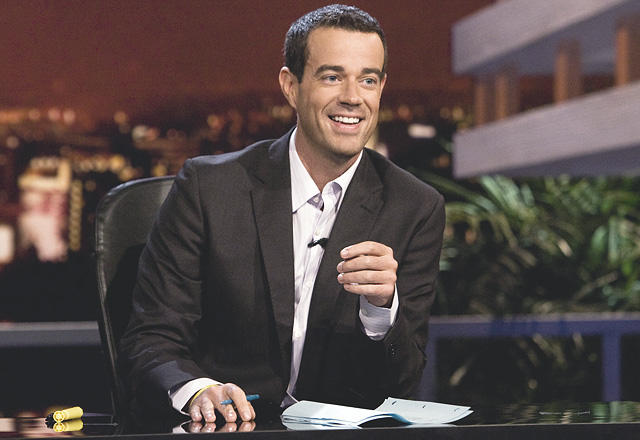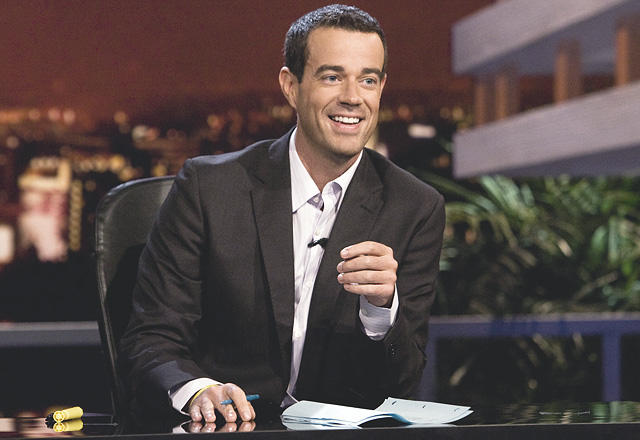Some TV shows are successful because audiences rely on it being the same thing week after week. Other shows keep going back to the drawing board, and revamp until they hit on something that works.
Last Call with Carson Daly
After the late-night TV shakeups of the last few years, a lot of hosts switched networks and time slots. Jay Leno took back The Tonight Show from Conan O’Brien; O’Brien went to TBS, and then Jimmy Fallon moved up from O’Brien’s old Late Night show to The Tonight Show. Through it all, Carson Daly kept his show on NBC, which airs in the extremely late time slot of 1:30 a.m. It pulls in a steady audience despite being on in the middle of the night, as well as frequent format changes to pull in more insomniacs. When it debuted in 2002, it was a traditional if bare-bones talk show — the former MTV veejay sat at desk and interviewed celebrities initially without a band or a monologue. In 2009, the show was shot on location, such as at celebrities’ homes or taping bands play at real nightclubs. In 2013, the show changed formats once more. Now, Daly only appears to introduce the show and individual segments. Producers (never shown on camera) interview celebrities and a crew films bands playing at Los Angeles hotspots.
Together We Stand
Successful TV producer Sherwood Schwartz really wanted to make a TV show about parents who adopt a bunch of kids of different backgrounds. He first tried in 1974 with Kelly’s Kids. Airing as an episode of Schwartz’s The Brady Bunch, Ken Berry and Brooke Bundy played the parents. ABC didn’t pick it up for a full series, so Schwartz tried again in 1986 with Together We Stand. This time Elliot Gould and Dee Wallace Stone played the magnanimous adoptive parents of four children. After six episodes, CBS pulled the show off the air but allowed Schwartz to fix it. He did, completely abandoning the premise. Gould’s character was killed off, leaving Stone’s mom to raise four kids alone. The show was retitled Nothing is Easy…which lasted just seven episodes.
The Doris Day Show
After a long career as a singer and movie star, Doris Day headed to TV in 1968 with CBS’s The Doris Day Show. The iconic actress played a widowed mother of two who moves from the big city to a California ranch to join her father (Denver Pyle). While the show was a hit, CBS executives didn’t think a rural setting was right for Day, so in 1969 writers changed the series to be an office comedy: Day now worked as a secretary a magazine in San Francisco. That didn’t please CBS brass either, so in 1971, writers got rid of Day’s children and made her character a famous, veteran magazine writer. That format stuck…until The Doris Day Show was cancelled in 1973.
Baywatch Nights
After being canceled after a single season by NBC, Baywatch went into syndication…and became one of the most popular TV shows of all time. That was probably almost entirely because of the titillation factor: The action consisted primarily of attractive people like David Hasselhoff and Pamela Anderson wearing bathing suits and running in slow motion. Nevertheless, some TV executive thought people tuned in for Baywatch’s riveting drama, and commissioned a spinoff. When Baywatch Nights debuted in 1995, it depicted Baywatch lifeguards Mitch Buchnannon (Hasselhoff) and Ryan McBride (Angie Harmon) opening a detective agency. Baywatch Nights was dead in the water, but rather than give up, writers revamped the series. In season two, the show became an X-Files clone, with the lifeguards investigating aliens and ghosts. And then it was canceled.









